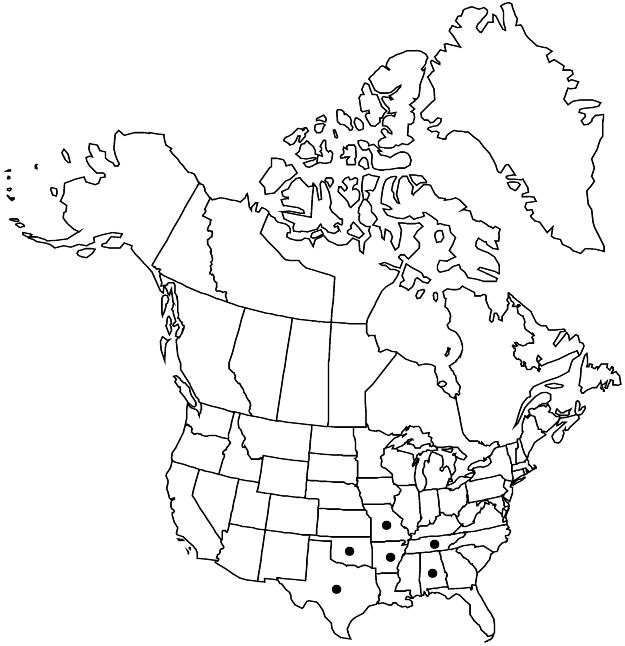Difference between revisions of "Phyllanthopsis phyllanthoides"
Kew Bull. 63: 47. 2008.
FNA>Volume Importer |
FNA>Volume Importer |
||
| Line 14: | Line 14: | ||
|name=Andrachne phyllanthoides | |name=Andrachne phyllanthoides | ||
|authority=(Nuttall) Müller Arg. | |authority=(Nuttall) Müller Arg. | ||
| − | }}{{Treatment/ID/Synonym | + | }} {{Treatment/ID/Synonym |
|name=A. reverchonii | |name=A. reverchonii | ||
|authority=J. M. Coulter | |authority=J. M. Coulter | ||
| − | }}{{Treatment/ID/Synonym | + | }} {{Treatment/ID/Synonym |
|name=A. roemeriana | |name=A. roemeriana | ||
|authority=(Scheele) Müller Arg. | |authority=(Scheele) Müller Arg. | ||
| − | }}{{Treatment/ID/Synonym | + | }} {{Treatment/ID/Synonym |
|name=Leptopus phyllanthoides | |name=Leptopus phyllanthoides | ||
|authority=(Nuttall) G. L. Webster | |authority=(Nuttall) G. L. Webster | ||
| − | }}{{Treatment/ID/Synonym | + | }} {{Treatment/ID/Synonym |
|name=Phyllanthus roemerianus | |name=Phyllanthus roemerianus | ||
|authority=Scheele | |authority=Scheele | ||
| − | }}{{Treatment/ID/Synonym | + | }} {{Treatment/ID/Synonym |
|name=Savia phyllanthoides | |name=Savia phyllanthoides | ||
|authority=(Nuttall) Pax & K. Hoffmann | |authority=(Nuttall) Pax & K. Hoffmann | ||
| − | }}{{Treatment/ID/Synonym | + | }} {{Treatment/ID/Synonym |
|name=S. phyllanthoides var. reverchonii | |name=S. phyllanthoides var. reverchonii | ||
|authority=(J. M. Coulter) Pax & K. Hoffmann | |authority=(J. M. Coulter) Pax & K. Hoffmann | ||
| − | }}{{Treatment/ID/Synonym | + | }} {{Treatment/ID/Synonym |
|name=S. phyllanthoides var. roemeriana | |name=S. phyllanthoides var. roemeriana | ||
|authority=(Scheele) Pax & K. Hoffmann | |authority=(Scheele) Pax & K. Hoffmann | ||
| Line 50: | Line 50: | ||
|elevation=0–200 m. | |elevation=0–200 m. | ||
|distribution=Ala.;Ark.;Mo.;Okla.;Tenn.;Tex.;Mexico (Nuevo León). | |distribution=Ala.;Ark.;Mo.;Okla.;Tenn.;Tex.;Mexico (Nuevo León). | ||
| − | |discussion=<p>Phyllanthopsis phyllanthoides is morphologically variable, common in parts of its range, and sometimes cultivated as an ornamental.</p> | + | |discussion=<p><i>Phyllanthopsis phyllanthoides</i> is morphologically variable, common in parts of its range, and sometimes cultivated as an ornamental.</p> |
|tables= | |tables= | ||
|references= | |references= | ||
| Line 74: | Line 74: | ||
|publication year=2008 | |publication year=2008 | ||
|special status= | |special status= | ||
| − | |source xml=https://jpend@bitbucket.org/aafc-mbb/fna-data-curation.git/src/ | + | |source xml=https://jpend@bitbucket.org/aafc-mbb/fna-data-curation.git/src/8f726806613d60c220dc4493de13607dd3150896/coarse_grained_fna_xml/V12/V12_9.xml |
|genus=Phyllanthopsis | |genus=Phyllanthopsis | ||
|species=Phyllanthopsis phyllanthoides | |species=Phyllanthopsis phyllanthoides | ||
Revision as of 14:50, 18 September 2019
Shrubs, monoecious (often apparently dioecious), 5–10 dm. Stems sparsely branched, branches ascending, longest leafy branchlets to 30(–55) cm. Leaves: petiole 0–1 mm; blade elliptic or obovate to orbiculate, 7–25 × 6–20 mm, base cuneate to cordate, apex acute to rounded or mucronate, abaxial surface glabrous or pilose, adaxial surface glabrous or midvein pilose; secondary vein pairs 4–7, clearly visible. Inflorescences: staminate flowers solitary or 2(–4) per fascicle; pistillate flowers usually solitary, rarely 2 per fascicle. Staminate flowers: sepals elliptic or oblong to obovate, 1.2–2.5 mm; petals 1–2 mm; nectary 5-, 10-, or irregularly crenate; pistillode glabrous. Pistillate flowers: sepals elliptic to obovate, 1.5–3 mm; petals 0.4–0.8 mm; nectary 10-crenate; pistil 3-carpellate. Capsules subglobose, 3.6–6.5 mm diam., shallowly 3-lobed; columella 2.5–3 mm. Seeds orange to brown, sometimes mottled, 1.8–3.5 mm; caruncle usually absent, sometimes present, white to pale orange, 0.5 mm diam. 2n = 26.
Phenology: Flowering and fruiting May–Sep.
Habitat: Exposed areas, riverbanks, open woodlands, limestone and dolomite.
Elevation: 0–200 m.
Distribution

Ala., Ark., Mo., Okla., Tenn., Tex., Mexico (Nuevo León).
Discussion
Phyllanthopsis phyllanthoides is morphologically variable, common in parts of its range, and sometimes cultivated as an ornamental.
Selected References
None.